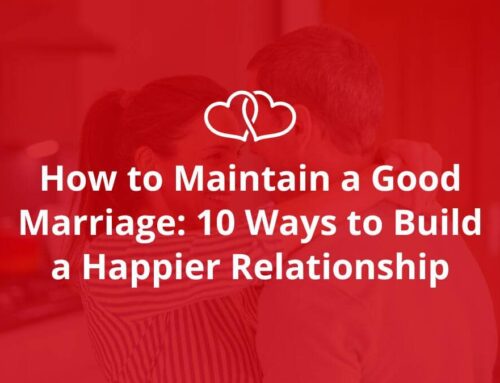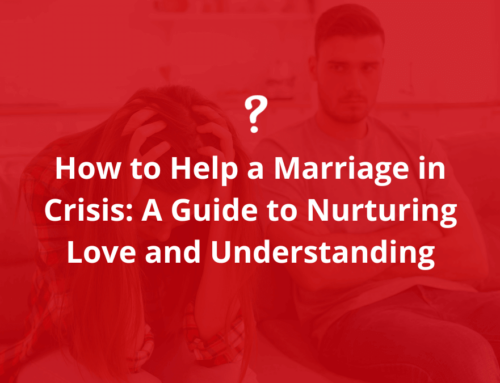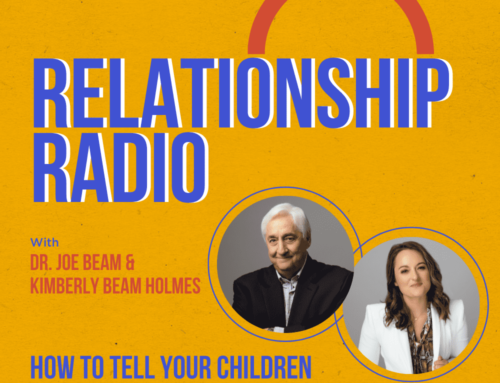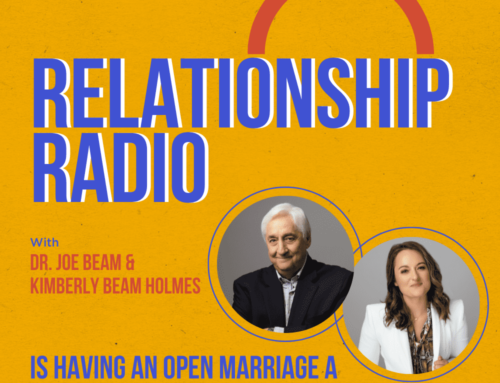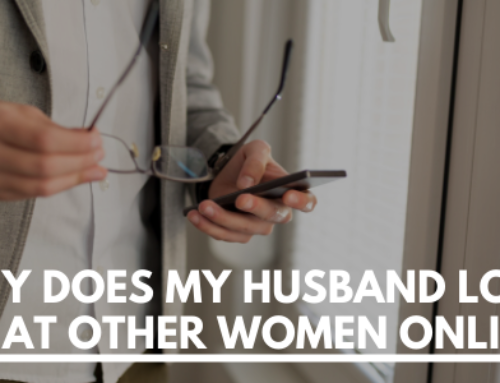Is is possible to stop your divorce and make your marriage better than before?
One of the things I hear as soon as people discover I work with couples is, “Jim, what is the one thing I can do to make my marriage better? You have to have a magic line, right? There’s a pill. There’s something.” I just remember what I was taught by my mentor, Dr. Beam, which is, “If you want your marriage to be great, you have to stop doing the things that make it bad and start doing the things that make it better.”
There you go. End of story. No, there’s too much speculation that comes into that. Too many opportunities for craziness. The truth is, I can’t tell you three things, five things, or a million things that are going to make your relationship better based on your interpretation of it.
In fact, a couple decides what works in their relationship based on how they view the other person’s actions. What I can tell you is that in Dr. John Gottman’s 25-year literature review, one of the things he did was pull everything written on relationships, everything written on marriage, and asked, “why are people divorcing?”
After they brought all of the material in, what they discovered is that there are three things that lead to divorce and they are: I don’t feel you love me. I don’t feel you like me. I don’t feel you respect me. You will notice there’s one word that is completely connected to all of those and it really is the source of this. That is feelings. They’re different. They’re difficult. What I mean by that is feelings may have rational types of input that move you in a certain direction.
Once we get into our emotion, there’s rarely anything rational about it. So, when I think about what’s happening in a couple’s life, or when I think about what’s happening in a couple’s relationship, one of the things I want to look at is that interaction.
Here’s a few things you can keep in mind when you think about, “What can I do to make my marriage better? What’s most important in my marriage?”
Number one is making sure your spouse understands that you love them.
That’s not just in your words or even in gifts, but they have to have a general understanding, meaning that you love them as a human being. Not necessarily you love what they do for you or how they look. But as a person, you love them. Typically, that’s processed through the eyes of acceptance.
For example, if I come to you and I’m having a difficult time and you support me, even if you don’t agree with it, you support my emotion in it and acceptance is there. I can feel like you must care for me. You must love me. As a result of that, I’m likely to build more intimacy. If I don’t have that emotional connection, if I don’t feel like you love me because of resistance or lack of acceptance, then I’m going to withdraw.
Being accepting or being available doesn’t mean agreeing with everything, but it means I’m not going to attack you or hurt you when you do share something with me that might be painful.
The second thing that is important in your marriage is letting your spouse know you like them.
You probably heard people say, or you maybe have said it to your son or daughter when they were a teenager, “You know what? I love you, but I don’t like you right now.” I can’t think of how many times my wife has said that to me. In fact, I think I’ve said it to myself in the mirror a few times. But being liked matters. It tends to connect to the thought of, we have good times together.
You can love someone and not enjoy your time with them, but to love someone and like them signifies the interactions we have. The interactions we are having are enjoyable. They pull me towards you. They increase my passion to be with you. It’s not just that you love me, but that I feel like you like me too. We’re buds, we’re friends. We get along. There’s not a sense of disgust.
Those two things are very important. Here’s another thing we know: You can love me, you can like me, but I may be looking at your behavior and listening to your words and thinking, “But you don’t respect me.”
Respect is also crucial for making your marriage last.
Respect can be a big deal for a lot of people.
I think everybody wants to be respected. For some people, it’s a higher demand than others. Some, it’s lower. But to think to yourself, “This person doesn’t respect me.” Actually put yourself in a place of, “I’m not valuable. If I was valuable, you would honor what I say. You would hear what I say.” This is probably where a lot of couples go awry. They stop respecting each other.
That leads to, “I don’t think you like me” to eventually, “I don’t think you love me.” Respect is key, but here’s the big thing about respect: I can’t determine what you decide is respect for you. I might think it’s disrespectful to interrupt someone. Of course, if you ever joined my family when I was a kid, you would realize that interruption is a required skill in my family to get anything done. But just because interrupting seems rude to me, it may not be rude to many people around me. I can’t just say that a certain event or act is rude or disrespectful.
So it is very possible, in fact, highly probable, that you may be working hard trying to demonstrate respect, but you’re not demonstrating it in a manner in which your spouse recognizes it.
Now both of you are frustrated and where’s that going to lead to? It’s not going to lead to roses, I can promise you. What you really want to be able to do at that time is evaluate. Discover how your spouse perceives respect and how your behavior is either validating that or pushing it aside. We all want to be loved, liked, and respected. If you can do that in a marriage, you’ll eliminate a lot of the other stuff. It’s just determining, how does your spouse see love? How do they interpret like? How do they interpret respect? That’s going to be on the perspective of your behavior. I would encourage you to stay focused on this.
What’s Next?
Now, there’s a lot of ways you can do this. Number one, we have the SMART Contact Toolkit. In the SMART Contact Toolkit, it tells you of different variables, situations, and ways that you can avoid getting into the disrespect cycle in conversation. It keeps you away from pitfalls and puts you on the path to a better relationship, if you can follow them. I’d encourage you to check that out.
Of course, we have the full course called “Save My Marriage” and that covers a huge spectrum of things. If you’re interested in any of these or some of our other tools, give us a call here at Marriage Helper (866-903-0990) or fill out the form on this page to schedule a meeting with one of us. You can get a client representative to call you, or check us out on YouTube. I promise you we’re here to help you reach your vision and goal for your relationship. Take care.


